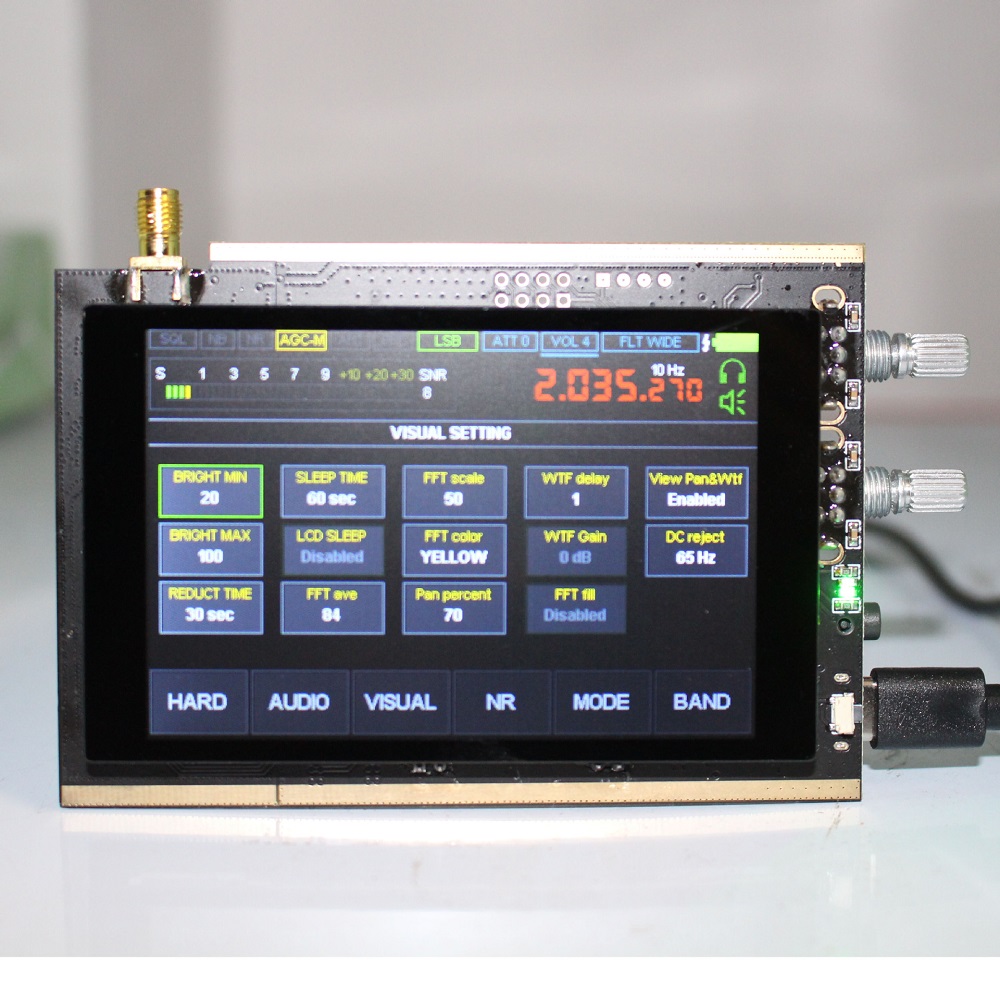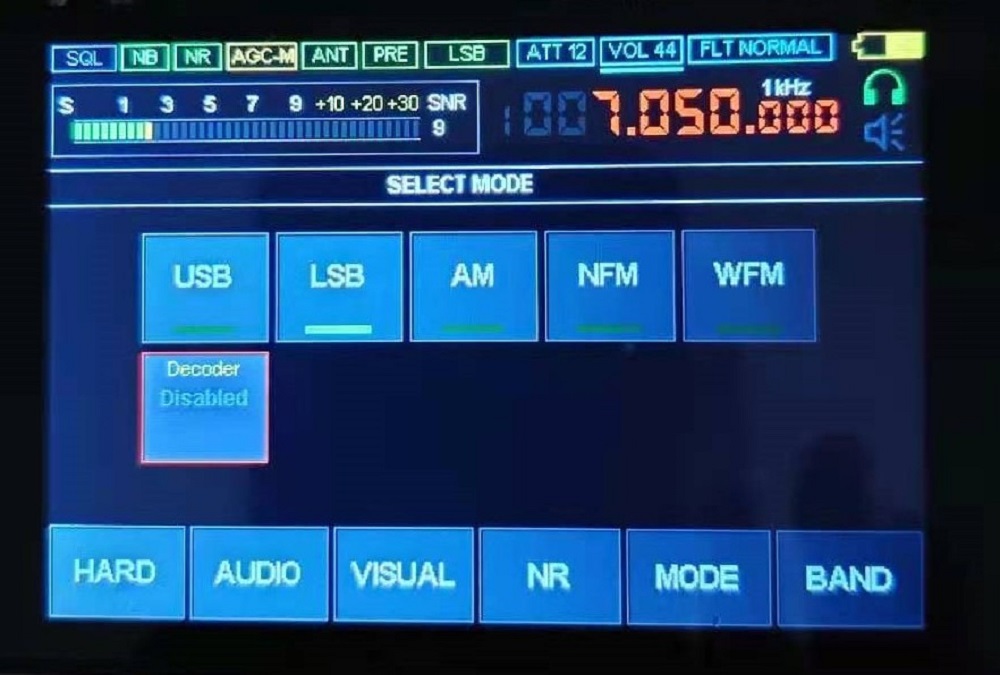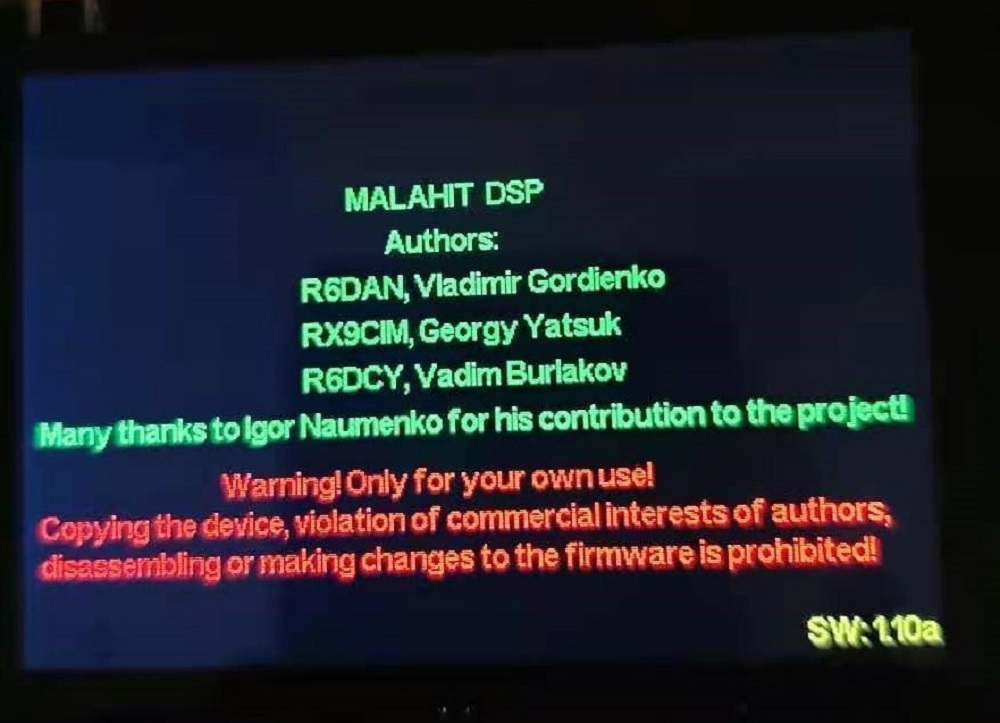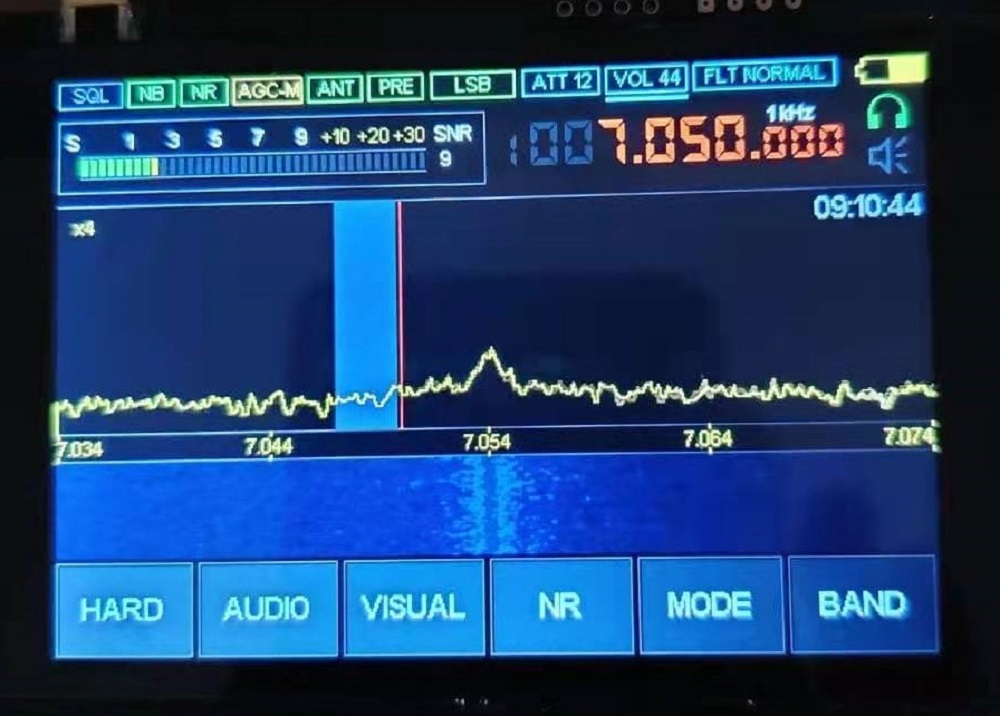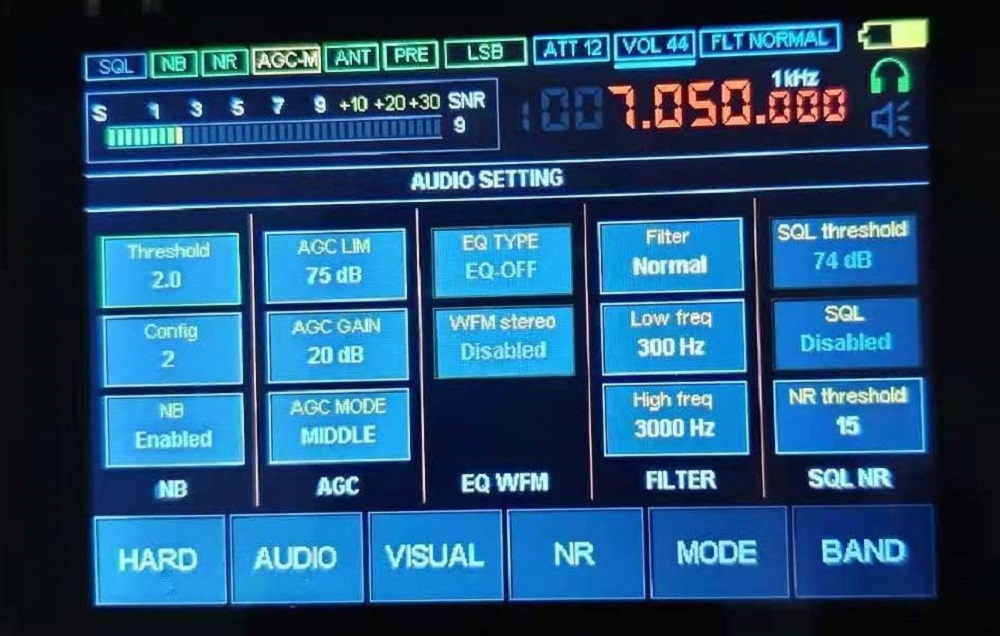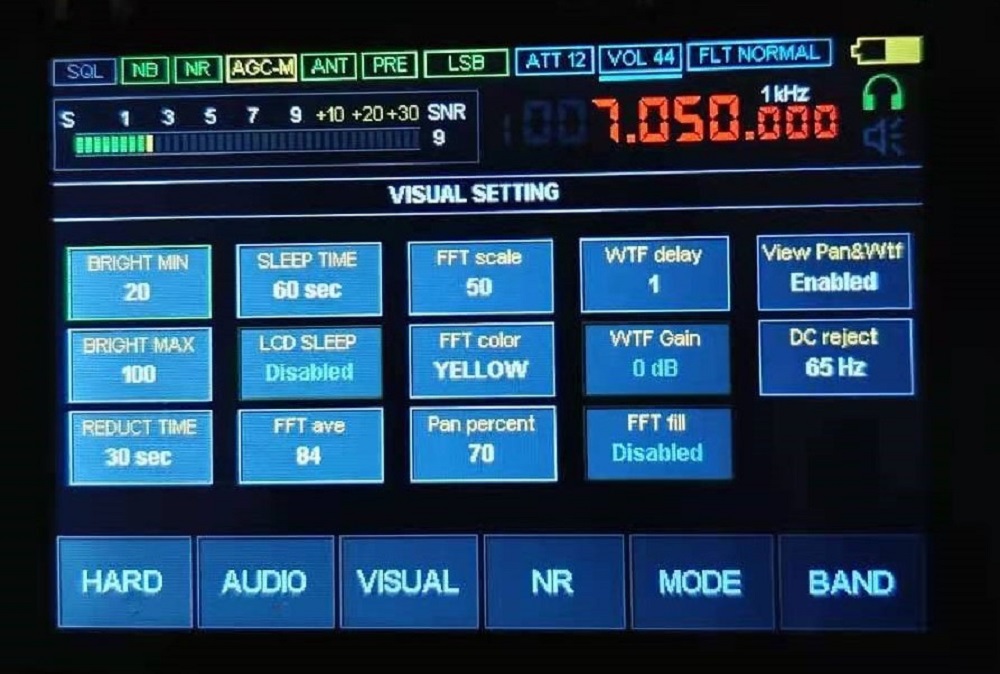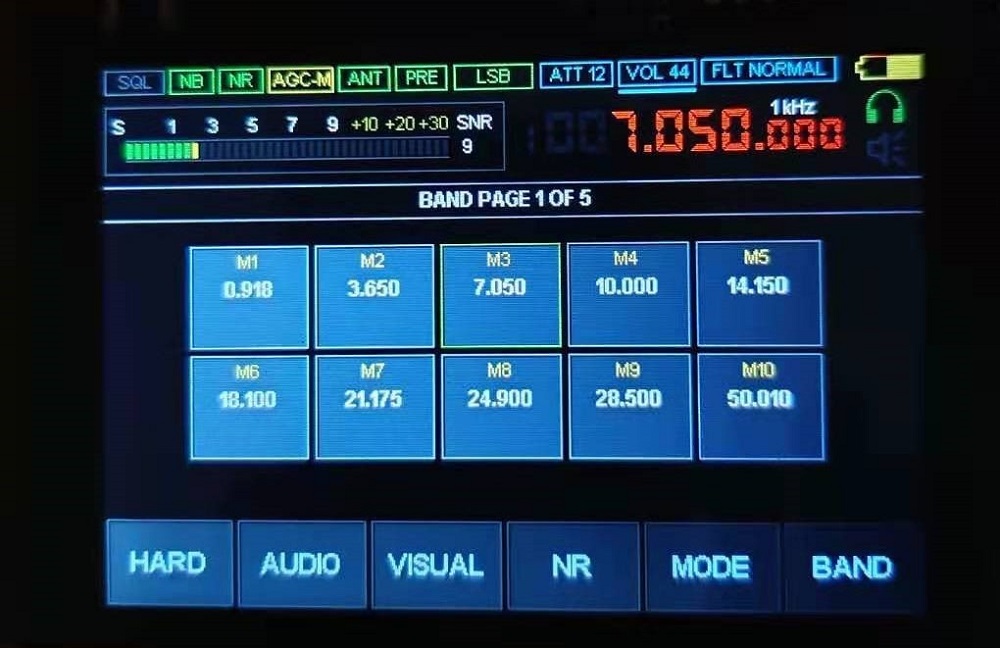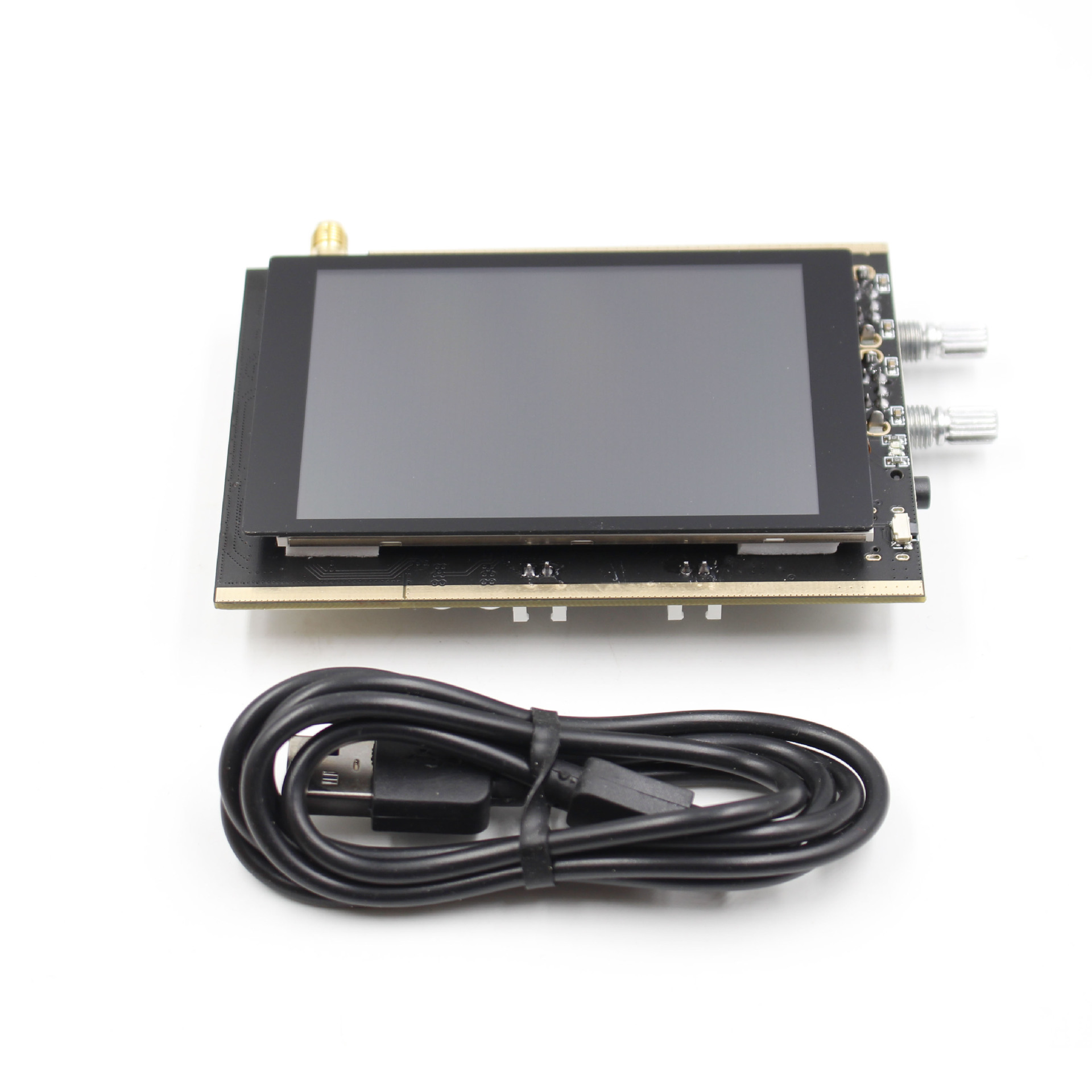1) The radio is constructed according to the SDR principle-the function is determined by the loaded software;
2) Frequency range: 50 kHz to 200 MHz and 400MHz to 2GHz
3) All types of analog modulation: AM, SSB, NFM, WFM;
4) Powerful functions: variable filter width, adaptive noise suppressor, threshold noise suppressor,
Noise reducer, AGC, equalizer;
5) Use the cheap but fully functional chip msi001;
6) Use powerful stm32h743 with a clock frequency of 480 MHz;
7) 3.5-inch IPS display with touch screen;
8) There is a built-in UHF;
9) Controls-2 encoder with buttons and touch screen;
10) The power supply is powered by the external TYPE-C (Huawei mobile phone) interface or battery (need to be used by the user), and can be charged by TYPE-C. The battery capacity is not less than 1500mA/h.
11) 300mA current consumption when listening to headphones;
12) Reception on the built-in telescope or external antenna In order to improve the HF reception on the telescope antenna, please turn on
An add-on board with a source follower was released. The board will be built into the standard receiver design.
13) Connect to the computer via USB, you can transfer CAT, IQ and audio.
14) 160 kHz span, with scalability;
15) Sensitivity-under the condition of up to 250MHz, s / w is 0.3μV = 10dB; the limit receiving sensitivity is almost close to -130dbm
16) DSP filter adjustment range: 0-10KHz (preferably adjusted to 50Hz-3KHz voice clarity and anti-interference ability)
17) Due to the characteristics of the msi001 chip used, the dynamic blocking range is about 85dB.
18) With backlight control;
19) SMA female antenna socket;
20) The size of the main board is 100X70mm (excluding protruding rods);
21) Mainboard weight 78g
The simple operation instructions are as follows:
1. Turn on: Press and hold the power switch for 2 seconds to turn on.
Shutdown: Press and hold the power switch for 2 seconds to shut down.
2. The knob in the upper right corner is used to adjust the volume and DSP bandwidth. Click this button to switch between volume adjustment and DSP bandwidth adjustment.
3. The second key in the upper right corner is frequency adjustment. When the underline at the bottom of the frequency is at the number, turn this knob to adjust the frequency value of the number. Tap the frequency value with your finger to adjust the position of the underline. Adjust the desired frequency. If the screen is blank, press the knob to light up the screen. Click the knob to switch between headphones and speakers.
4. Receiving mode conversion: press and hold the knob on the upper right for 3 seconds, then release it. There will be 5 receiving modes in the middle of the screen. Tap the selection with your finger to switch between USB LSB AM NFM WFM. If you don't want to switch, you can click the knob in the upper right corner again to exit.
5. Click BAND in the lower right corner of the screen, the internal frequency used before shutdown will be displayed. Tap with your finger to make a call directly. If it is the registered version, you can press and hold the frequency box and then hear a beep. The registered version has no storage function. Click BAND in the lower right corner of the screen to switch between page 3 and storage page. Click the knob in the upper right corner to exit.
6. Internal settings: press MENU in the lower left corner of the screen to enter, press HARD to enter EN1 Reverse and EN2 Reverse refers to whether the two knobs in the upper right corner are adjusted clockwise or counterclockwise, but this version cannot be saved without registration, and will It resets after shutdown, so no adjustments are required. The ANT option does not need to be adjusted. The internal default value is the input signal of the ANT terminal. When the PRE is receiving the shortwave frequency band, it is recommended to adjust it to OFF to make its internal filter work, so as to improve the anti-interference ability and enhance the received signal of the shortwave frequency. After the adjustment is complete, click the second option in the upper right corner to exit. Adjust the sound AUDIO according to your own preferences, and adjust the RF GAIN according to the received signal strength. The unregistered version is not very obvious.
1. HARD (hard) (hard) (setting):
EN1, EN2: The addition and subtraction directions of the two encoders are opposite.
V bat/power display: S standard, L low voltage.
SW ante / shortwave antenna options: 50ohm 50 ohm / Hi-z high impedance.
ATT attenuator: the same as the transceiver.
LNA / MIX, MIX GR: Do not open the functions that the machine (including the originals version) does not have, otherwise the gain and sensitivity will be greatly reduced!
RF GAIN / RF gain: Same as the transceiver, when the sensitivity is set to about 20, the sensitivity is the highest.
PREAMP/Preamplifier: Same as the transceiver. F correction/frequency correction: use as needed. Sm calibration / S meter calibration: use as needed.
Time setting: Long press HARD to input time setting, then press the volume encoder to increase or decrease the number, then press inward to switch. When you are done, press and hold the encoder and release it when it beeps.
2. Audio (audio): NB / spark noise Thes / start control value and Config / setting value; Set these two to 2, you can try it yourself. Note/Switch: Dis open/Ena off. AGC / automatic gain control.
AGC LIN / AGC peak: experimental adjustment.
Manual/manual control: experimental adjustment. AGC mode / AGC mode: relevant, fast, normal, slow, very slow.
EQ (Equalizer) EQ TYPE/Equalizer switch and selection: first click, then use the volume encoder to open and select; including light music, live, club, rock, bass, language...
WFM Stereo/FM Stereo: Headphones only.
NR / DSP noise reduction Thes / setting value: set according to hearing. SQL Thes / Set value. SQL switch.
VISUAL (screen effect)
BRIGHT MIN (minimum brightness)/minimum brightness: 20.
BRIGHT MAX (maximum brightness) / maximum brightness: 100.
Recovery time: 0 seconds / 0 seconds.
Sleep time/sleep time: 300 seconds/second.
LCD SLEEP/Backlight sleep switch: D/on, E/off.
FFT average/spectrum average speed: 50.
FFT ratio/spectrum display range: 50.
FFT color/spectrum color: four kinds.
Offset percentage/spectrum offset percentage: 70.
WTF delay/spectrum reflection delay: 0.
WTF gain/spectrum reflection gain: 0dB.
FFT fill/spectrum fill: D/on, E/off.
MODE (mode) is the same as the transceiver, and its decoder is a CW decoding switch. After opening, there is a small white bar below the frequency. After opening, "Minimum SNR/Minimum Level" will appear: adjust as needed to make the decoding more accurate.
BAND (Band) band button, you can switch between band and band
Package included:
